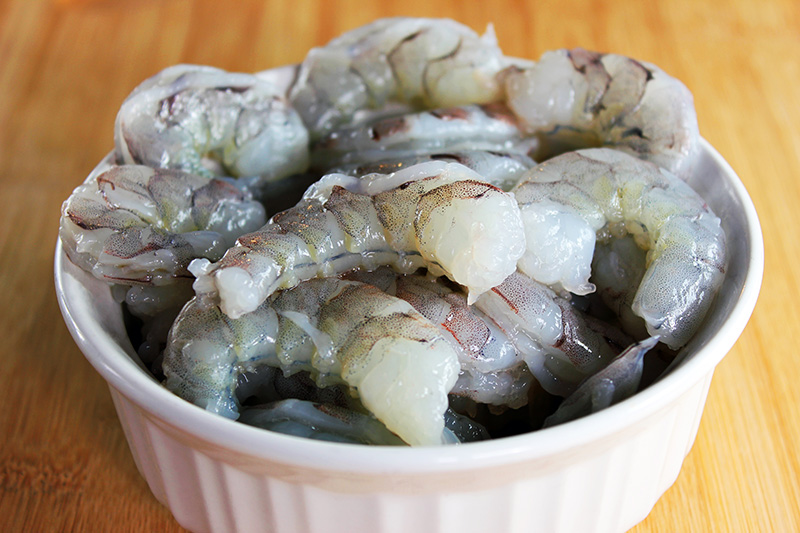Kung Pao Shrimp
Servings
4Serving size
4 ounces shrimp with vegetables and riceThis recipe can be multiplied by 2, 3.
This recipe makes great leftovers.

Ingredients
| 16 Ounces Shrimp, raw (peeled and deveined) |
| 2 tsp. Low sodium soy sauce (or gluten-free tamari sauce) |
| 2/3 Tbsp. Sake |
| 1 tsp. Sesame oil |
| 2 tsp. Rice Vinegar |
| 2 tsp.. Honey |
| 1 tsp.. Cornstarch |
| 2 cup Water |
| 1 cup White rice |
| 1 Tbsp. Sesame oil |
| 2 clove Garlic, raw (minced) |
| 1 Tbsp. Ginger root, raw (peeled and minced) |
| 1 pepper Peppers, hot chili, red, raw (seeded and minced) |
| 4 large Green onions (cut fine crosswise) |
| 2 tablespoon Rice Vinegar |
| 2 Tbsp. Low sodium soy sauce (or gluten-free tamari sauce) |
| 3/4 cup Water |
| 1/4 cup Dry roasted peanuts (chopped coarsely) |
Instructions
While the shrimp are marinating place the water in a medium sauce pan over high heat. When the water boils, stir in the jasmine rice.
Reduce heat to medium-low and simmer, partially covered, for about 25 - 30 minutes.
Do not boil away all of the liquid and do not stir the rice.
When a very small amount of liquid remains, remove the pan from the burner and let it stand, covered, for 5 minutes before serving.
After cutting the green onions separate the white and green part.
When the rice is done place a large skillet or wok over high heat. Add the sesame oil and heat for a few moments. Reduce the heat to medium and add the ginger, garlic, chili pepper and the white part of the green onions. Cook for about one minute.
Add the shrimp and cook for about one minute until lightly browned on the outside.
Add the rice vinegar and soy sauce. Cook the shrimp tossing frequently. When the shrimp is nearly done fold in the green part of the green onion and the 3/4 cup water. Cook for another minute.
Serve over the rice and top with the peanuts.

Would you like to print or download the document?
Special Diet Information
Click on the icon for information.










Lactose
This recipe is safe for those who are lactose intolerant.Recipe Notes
I like spicy food but not too spicy. This is literally the one pepper version and is pretty mild so it’s easy to make this spicier by adding peppers to your desired level of heat.
One way to control how much spiciness is in dishes like this one is to use chili oil. This is widely available now, and very common in Asian markets, but your grocery probably carries it.
Simply replace some of the oil that you use to stir fry with the chili oil. Start slowly at first — a half teaspoon for two servings may be enough for you (it is for me). Each time you cook use a little more if you want more heat. It’s great to have around and adds the flavor of a spicy chili pepper but you don’t have to take the time to seed and mince.



